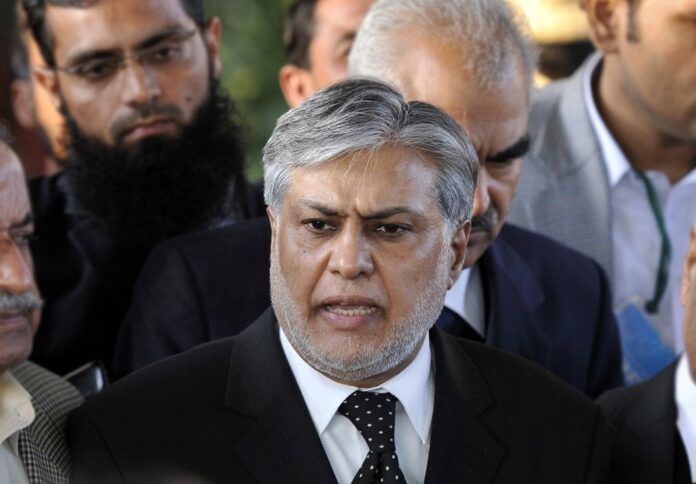The Supreme Court (SC) recently dismissed several petitions contesting the 2013 elections for various deficiencies. Interestingly just before the 2013 elections the SC ordered the defective electoral rolls to be corrected, because of time constraints the Election Commission of Pakistan (ECP) was instructed to go ahead with the elections, verification of voters being mandated for Karachi only. Such anomalies added to the suspicions and allegations about electoral rigging, culminating in the present protests. On Mar 19, 2014, the SC ordered the long overdue “Local Bodies” elections be completed by Aug 18, 2014, only Balochistan complied. Almost three months after that timeline has expired, feudal pressure has kept democracy from functioning at the grassroots level.
Just before the “Dharnas” commenced in Aug 2014, the National Assembly (NA) Speaker appointed a 33-member (including 11 Senators) Parliamentary Committee for “Electoral Reforms” in consultation with the Senate Chairman, “to evaluate the shortcomings in the present electoral process and make recommendations thereof to hold free, fair and transparent elections”, tacitly accepting the electoral system as flawed. Meeting recently for the ninth time chaired by Finance Minister Ishaq Dar, men of some substance were appointed to a sub-committee mandated to come up with definitive recommendations.
Will the sub-committee abandon the “filibuster” mode, speeding up the process? Some reforms are easy, indirect elections to the Senate, our “democratic” version of the British House of Lords, is a shameful disgrace, the “auction” for Senate seats in some cases an insult to the name of democracy! “Majority Vote” and “Proportional Representation” (PR) are basic requisites of any democracy. Without 50% plus one vote giving absolute majority in any constituency, “run-off elections” between the first two candidates and PR are necessary mechanisms to unite the community in countries beset with religious, sectarian, ethnic, etc. schisms.
Impacting beyond the boundaries of a single society, socio-political issues require ethical and responsible solutions. National security can be undermined if adverse socio-political environment prevail over values, ideology, economy and the decision-making process. The govt’s constitutional obligation to correct socio-economic inadequacies fails when the mechanism for administration and law enforcement is diverted for crass political motives. Those fixated on making money for themselves will invariably manipulate the system to enhance their own rule by delaying the reforms process. Endemic bad governance endangers the State and adversely affects the safety, comfort and welfare of the people. Without a transparent and effective electoral system, honest and capable leaders will never emerge.
Nations and individuals spout plenty of rhetoric about morality but abide by such codes on a selective basis. Conducting drone strikes in the territory of another sovereign nation, the US tolerates civilian collateral damage to go with militant kills, Necessity for holding the perpetrators of the 9/11 atrocity accountable overrides qualms in the public conscience about civilian casualties. Normally condemned as morally repugnant, applying this ‘doctrine of necessity’ for taking the evil out from its roots makes it justifiable under the Justice Oliver Wendell Holmes’ concept of combatting “clear and present danger” inculcating the spirit of the law rather than blindly adhering to its wording. Can one give blind adherence to the Constitution when the camouflage of democracy is used to deliberately criminalise society? It is cowardly and irresponsible to take refuge in verbatim interpretation of the words of the Constitution, one’s duty and obligation is to act in the spirit of what is morally right for the nation and its people.
Listen not to imran khan but (than) Chief Justice (CJ) of Pakistan Iftikhar Chaudhry, asking the students of the National Management Center in mid 2013, “Do we reward merit and hard work? Are the term principles of rule of law and the supremacy of the Constitution being strictly enforced? Do the citizens of the country trust the system and think it provides them fair opportunity to realise their dreams in a transparent manner? Does the present system have the capacity to discourage the corrupt? Do we have a system where civil and property rights are protected and contracts are fully enforced? The answer to the above questions is no, the system is distorted and does not provide a level playing field for the people to achieve in life whatever they are capable of,” unquote.
Consider the calling of the military in “aid to civil power” when mob violence makes it impossible for civilian rule to function, why does the military than accept power under Article 245 as necessary to restore the rule of law? Conversely, the oath to the Constitution does not mean one remains deaf, dumb and blind to deliberate mis-governance and blatant violations of the rule of law. Bluntly speaking, dereliction of this duty amounts to constitutional immorality at the expense of the nation.
Derived from the 1776 US Declaration of Independence (holding true for all democracies everywhere), the First Amendment to the 1789 US Constitution states: “Whenever any form of government becomes destructive of these ends, it is the right of the people to alter or to abolish it, and to institute a new government, laying its foundation on such principles and organising its powers in such form as to them shall seem most likely to effect their safety and happiness.”
When bad governance makes democracy delusional, applying common-sense logic to conscience someone must find the moral courage to cross an hypothetical fail-safe line to save the country from the predators in control!




